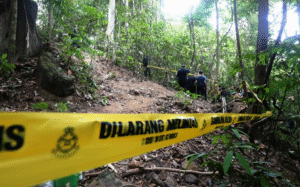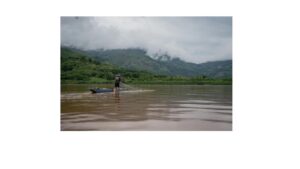How to Win the Friendship of Donald Trump and Influence the U.S. Administration
A Public Policy Advisory for All Political Stakeholders in Myanmar
From: Dr. Ko Ko Gyi @ Abdul Rahman Zafrudin
Location: Kuala Lumpur, Malaysia
Date: 1 August 2025
Introduction
This message is addressed respectfully to both the National Unity Government (NUG) and the Military Council led by Min Aung Hlaing, as well as to all actors invested in Myanmar’s future.
I initially shared these ideas privately with members of the NLD over a month ago. However, due to the lack of acknowledgment, feedback, or visible political progress, I believe it is now in the national interest to make this strategic policy proposal public.
I have no personal stake in any one political faction. Given the growing disillusionment among the public due to corruption, poor coordination, and escalating communal violence—including atrocities against the Rohingya by the Arakan Army (AA) and the deeply rooted Islamophobia affecting over 80% of Myanmar’s population—I now hold this position:
It matters less who governs Myanmar—be it the Spring Revolution, the military, or a transitional joint administration—as long as the ruling entity commits to genuine democracy, federalism, minority rights, and the rule of law.
Strategic Philosophy: A Dale Carnegie Approach
To paraphrase Dale Carnegie, author of How to Win Friends and Influence People:
- “Don’t bait the hook with what you like—bait it with what the fish likes.”
- Speak in terms of the other party’s interests.
- Arouse in them an eager want.
- Dramatize your ideas for maximum impact.
In that spirit, I offer the following policy memo—free to be adapted by either the NUG or the Junta—to win the attention and partnership of the U.S. administration, particularly the Trump-led White House.
POLICY MEMO
For Strategic Engagement with the United States
(Intended for: U.S. Department of State / Department of Defense / Indo-Pacific Command)
Subject: Myanmar’s Strategic Partnership Proposal: Advancing Mutual Interests in the Indo-Pacific
Executive Summary
Recognizing the shifting dynamics in the Indo-Pacific and the rise of authoritarian influence, the leadership of Myanmar—regardless of political affiliation—has an opportunity to present a pragmatic, conditional, and mutually beneficial partnership to the United States.
In return for measured U.S. support, Myanmar would offer:
- strategic access,
- natural resource collaboration, and
- a long-term commitment to democratic governance and regional security.
Key Proposals
1. Strategic Maritime Access
- Offer U.S. logistical access to select deep-sea facilities in the Myeik Archipelago or Tanintharyi Region, near the Strait of Malacca.
- Use limited to naval logistics, surveillance, humanitarian operations (not full basing unless negotiated post-transition).
2. Rare Earth & Strategic Mineral Partnership
- Upon stabilization, invite U.S. mining firms to jointly develop rare earth reserves in Kachin, Shan, and Kayin States, under a transparent regulatory framework co-designed with U.S., EU, and ASEAN advisors.
3. Humanitarian and Naval Relief Cooperation
- Grant the U.S. Navy dock access at Dawei or Kawthaung for disaster relief and anti-smuggling patrols in the Bay of Bengal and Andaman Sea.
4. Democratic and Human Rights Commitments
The governing authority (NUG or otherwise) would formally commit to:
- Free and fair elections post-conflict;
- Restoration of full citizenship for Rohingya and all ethnic minorities;
- Legal guarantees on press freedom, civil liberties, and religious tolerance;
- Alignment with ASEAN, UN, and Western constitutional norms.
5. Targeted Resistance or Stabilization Support
- Request discreet supply of non-lethal military and intelligence support, including:
- Anti-aircraft radar/intel for defense against airstrikes;
- Secure communications tools;
- Drones, medical kits, and field logistics.
Why This Matters for the United States
- Curtails Chinese military and economic expansion in mainland Southeast Asia.
- Establishes a pro-democracy foothold between India, China, and ASEAN.
- Gains leverage over critical mineral supply chains.
- Symbolically restores U.S. credibility after setbacks in Afghanistan, Syria, and Hong Kong.
Suggested Channels for Quiet Engagement
Initial U.S. dialogue may begin via:
- Think tanks: CSIS, IISS, Carnegie Endowment, or RAND;
- Quiet diplomacy via Malaysia, Indonesia, or Japan;
- Liaison with USINDOPACOM civilian or humanitarian branches.
Future Vision (Post-Conflict)
- Welcoming re-establishment of the U.S. Embassy in Naypyidaw or Mandalay;
- Allowing U.S. civil society organizations to help with justice, constitutional reform, and capacity building;
- Offering the U.S. lasting goodwill from a stable Myanmar anchored in democratic values.
Final Note
The people of Myanmar—regardless of ethnic or religious background—are exhausted by endless war, displacement, and division. This proposal is not a plea, but an opportunity for a strategic alliance based on mutual interests and values.
We seek a future where Myanmar contributes to regional peace, economic dynamism, and democratic resilience.
As Dale Carnegie might say:
“The way to win someone’s heart is to offer them what they value most—on terms that benefit both.”
Respectfully offered for consideration by any Myanmar stakeholder capable of forming a legitimate and inclusive government.
Dr. Ko Ko Gyi @ Abdul Rahman Zafrudin
Kuala Lumpur, Malaysia
Email: to MMNN [email protected]
Read also:
1/ Proposed Malaysian-led ASEAN Peace Negotiation Plan for Myanmar
2/ Exclusive: Trump team hears pitches on access to Myanmar’s rare earths
3/ A Strategic Advice for NUG to Engage and offer incentives to USA
5/ Siege warfare keeping Myanmar military in the fight
6/ RECLAIMING THE REVOLUTION’S INITIATIVE
8/ New investigation details abductions, torture, killings, and beheadings of Rohingya civilians
9/ UNITED WE STAND, d-i-v-i-d-e-d we FALL!
10/Metamorphosis of Saviors into Monsters: A Myanmar Folk Tale with a Modern Reflection
11/Strategic Advice to the Free World: Why Myanmar Matters and What Can Still Be Done






